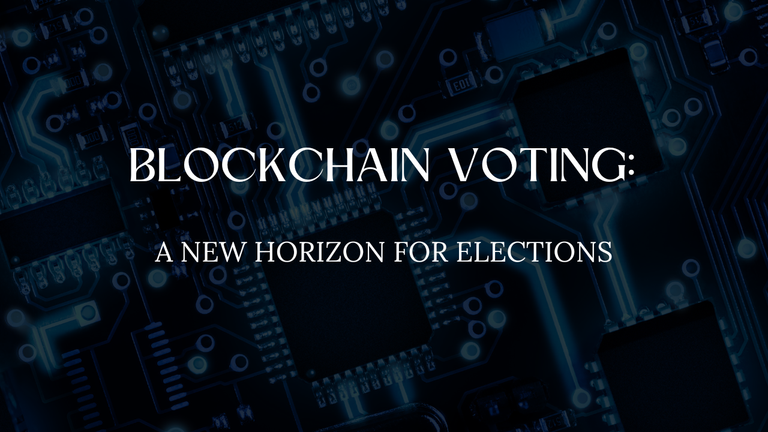Blockchain Voting: A New Horizon for Elections

As a futurist and American (especially during an election year), I am constantly thinking, "there has to be a better way" whenever it comes to anything pertaining to politics, including, the process of electoral voting. Fortunately, as technology relentlessly advances, blockchain emerges as a transformative force, particularly in the realm of voting. This piece explores how blockchain technology can revolutionize the electoral process, paving the way for a future of secure, transparent, and accessible democratic elections.
Understanding Blockchain Technology
At its core, blockchain is a decentralized digital ledger, recording transactions across many computers. Its hallmark features - decentralization, impenetrability, and transparency - make it a promising solution for modernizing traditional voting systems.
Current Challenges in Voting Systems
Today's voting mechanisms are hindered by various issues: susceptibility to fraud, low turnout, accessibility hurdles, and ballot integrity concerns. Recent global election controversies underscore the urgent need for reform.
Blockchain as a Solution
Blockchain offers a robust solution to these challenges. Its immutable ledger ensures recorded votes cannot be altered, safeguarding vote integrity. Simultaneously, it enhances process transparency while maintaining voter anonymity.
Case Studies and Experiments
Notable experiments, such as Estonia's e-Residency program and West Virginia's 2018 midterm election pilot, illustrate blockchain's potential in enhancing voting systems. These cases provide tangible evidence of its applicability and effectiveness.
Advantages of Blockchain Voting
Blockchain in voting promises numerous benefits: bolstered security against fraud, increased accessibility for remote voters, quicker and more accurate vote tallying, and potentially higher voter participation due to digital convenience.
Challenges and Concerns
Nevertheless, challenges persist. The digital divide raises concerns about equitable access, while cybersecurity threats loom large. Additionally, educating voters about this novel technology is imperative.
The Future of Voting with Blockchain
Looking ahead, blockchain could radically transform voting. It opens up possibilities like global platforms for diaspora voting, real-time referendums, and enhanced direct democratic engagement.
Blockchain technology holds the potential to revolutionize voting, making it more secure, transparent, and accessible. However, realizing this potential requires ongoing research, development, and cautious implementation to fully support and enhance democratic processes.
Congratulations @ashleymosaic! You have completed the following achievement on the Hive blockchain And have been rewarded with New badge(s)
Your next target is to reach 50 comments.
You can view your badges on your board and compare yourself to others in the Ranking
If you no longer want to receive notifications, reply to this comment with the word
STOPTo support your work, I also upvoted your post!
Check out our last posts: